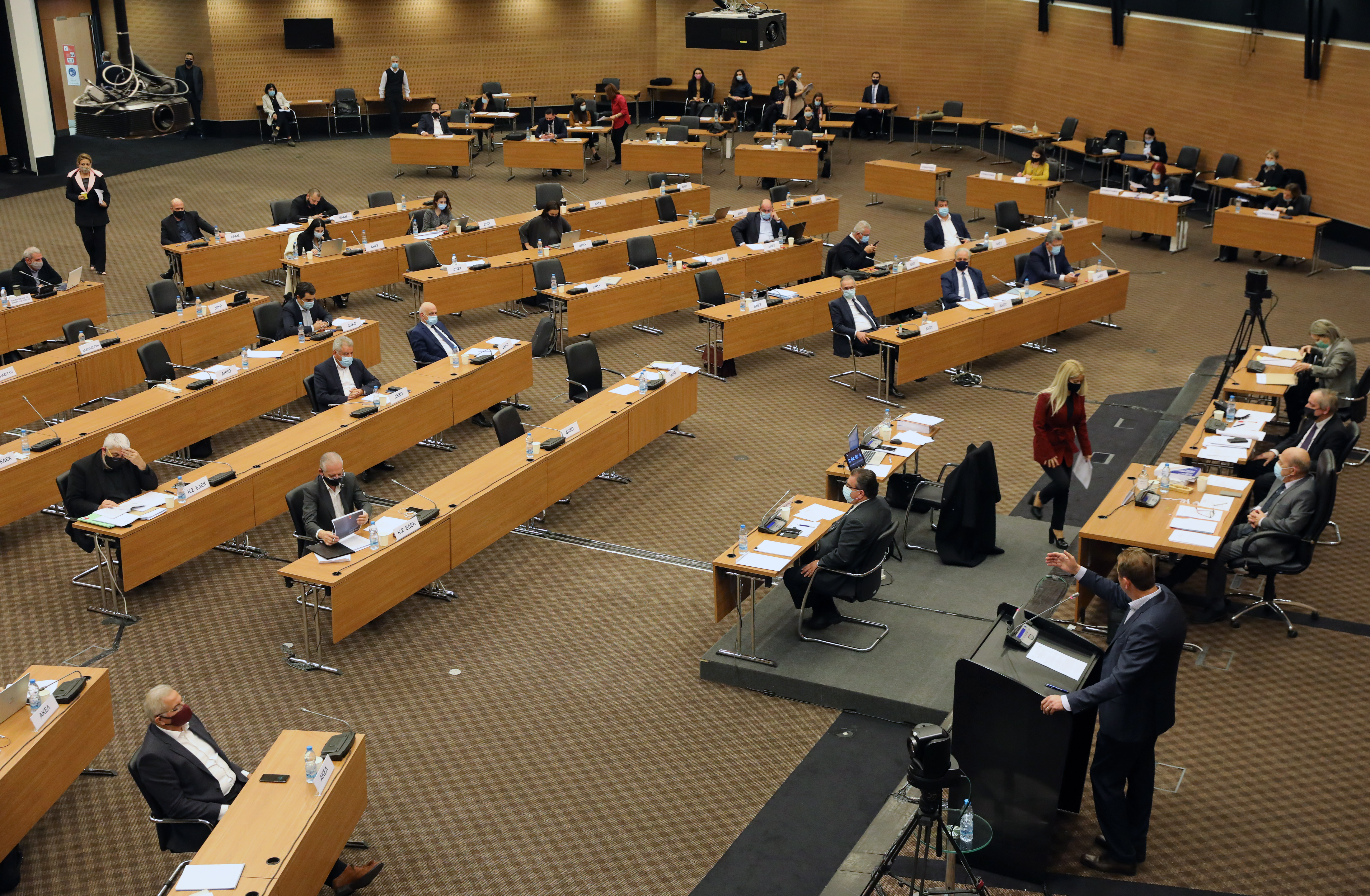Parliament on Friday approved publication of a list with the names of politically exposed persons (PEPs) with bad debts at the former co-op bank, which includes mostly former MPs but also a few sitting ones.
The list is part of an audit service report into Kedipes, the entity that replaced the co-op, and took over some €7.5bn in non-performing loans.
According to the report, PEPs had substantial loan amounts written off or swapped debt for assets of lower value, among others.
The audit service identified PEP cases involving €4.2 million in write-offs, €3m in loan balances that would be written off under certain conditions, and €4.9m in debt for asset swaps.
The audit focused on 161 PEPs, 783 close relatives, and 49 connected companies.
The report details the financials of 22 PEPs with loans at co-ops.
Forty-one MPs voted in favour of the publication, one voted against and two abstained.
Following the vote, an angry House president urged the public to not just focus on the names on the list but also read the accompanying report and the report prepared by the audit service.
The service had said that its report did not imply that the PEPs involved had engaged in inappropriate behaviour or had received preferential treatment.
“Sorry for the tone, but I am very angry,” Adamou said. “This thing insults me.”
Adamou said he would not accept any other kind of list going to parliament for publication just because MPs had immunity.
Just like a similar list prepared by commercial banks, this too had not been made public because of personal data considerations. Under the weight of public opinion, parliament was forced to publish both lists, exposing MPs to unwarranted criticism in some cases.
Akel leader Andros Kyprianou said the legislature was being driven by populism to essentially violate personal data and contribute to smearing personalities who did nothing wrong.
“People will be pilloried even if they are not to blame just to satisfy the crowd,” Kyprianou said.’
The Akel leader said such lists only provided cover to those who committed graver offences like taking money out of the country during the closed period in 2013 and receiving preferential treatment from other banks.
Earlier, Diko MP Christiana Erotokritou suggested the decision did not really serve transparency, echoing Kyprianou.
“This is what we seek, and we won’t be satisfied with piecemeal publication of a few names,” she said.
The report covered the period after 2013, when the co-op was nationalised with around €1.7bn in taxpayer money, only to be shuttered three years later due to bad management and its failure to recover €7.6bn in non-performing loans or exposures.
The report said because it would have been practically impossible to audit the period before 2013 within a reasonable timeframe, the audit service decided to focus on PEPs who had been audited for tax reasons.
Specifically, the service examined facilities extended to living individuals who held the office of president of the Republic, minister, MPs, between 2008 and 2019, or party leaders. Based on the criteria, a list of 161 people was drafted, along with their parents, spouses and children, and the companies linked with them.







Click here to change your cookie preferences